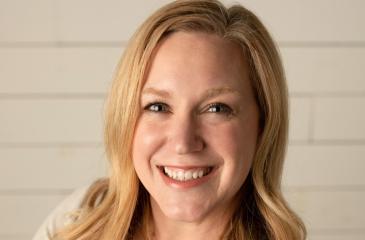In 2022, three community leaders from rural Minnesota were selected as the second cohort for Project REACH (Rural Experts Advancing Community Health), a joint initiative of the University of Minnesota Rural Health Program through the Office of Academic Clinical Affairs and the Clinical and Translational Science Institute.
Project REACH is a year-long program that provides diverse community leaders in rural Minnesota with health policy and leadership training. Participants learn to frame health policy challenges and how to communicate effectively with state legislators and other policymakers. Participants identify local challenges, build leadership skills to address the challenge, and develop and share a policy proposal with relevant decision makers. Throughout the program, participants have access to mentorship from U of M faculty and staff.
Erin Schwab, CCP, one of the members of the Project REACH cohort, is a public health advocate who is dedicated to helping rural Minnesotans empower themselves to live their healthiest lives. Over the past 10 years, Schwab has been a voice for those unable to advocate for their health care needs. Schwab is passionate about improving community health by looking at health inequities, analyzing data, and finding solutions to improve the health of all. She works with local action teams promoting mental health and wellbeing, and aiming to increase awareness of addiction and substance abuse. In 2017, Schwab participated in the Minnesota Governor's Council on Developmental Disability's Partners in Policymaking.
As part of her work with Project REACH, Schwab has worked to impact policies related to access to mental health services and resources in Brown County. Her work has been focused on addressing the high rates of adverse childhood experiences (ACEs). Her policy proposal highlighted opportunities for increasing education and awareness about ACEs among both parents and providers, as a step towards creating trauma-informed systems in the community. She has since helped train over 75 community members in ACEs and taken on the role of coordinator for the Families First Children’s Collaborative, which focuses on providing resources and support to strengthen families and encourage collaboration of community partners.
“By raising awareness of the impact our earliest experiences in life can have for our future, it is my hope that our communities will recognize adverse childhood experiences, rise to the challenge to stop them, and to offer support for those who may be struggling,” said Schwab. “When we work and grow together, wonderful things will happen in our communities.”



